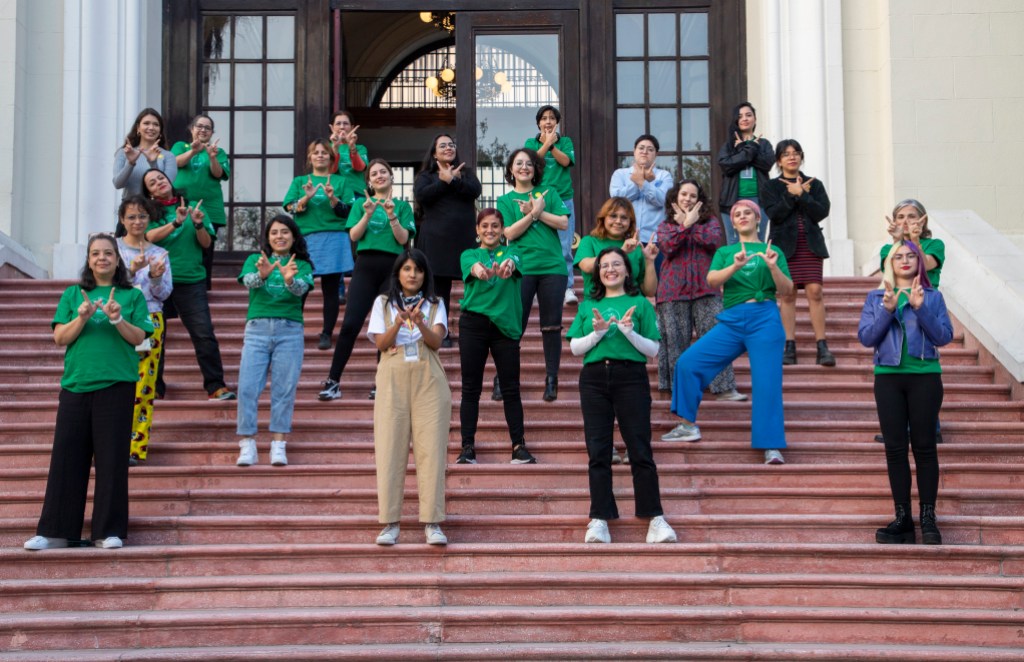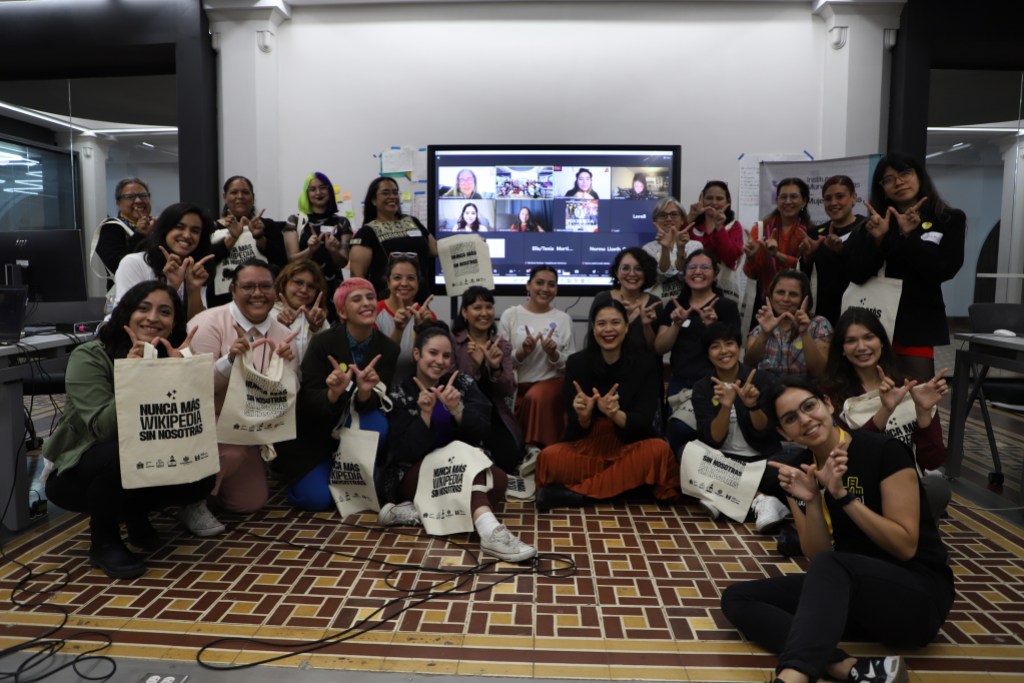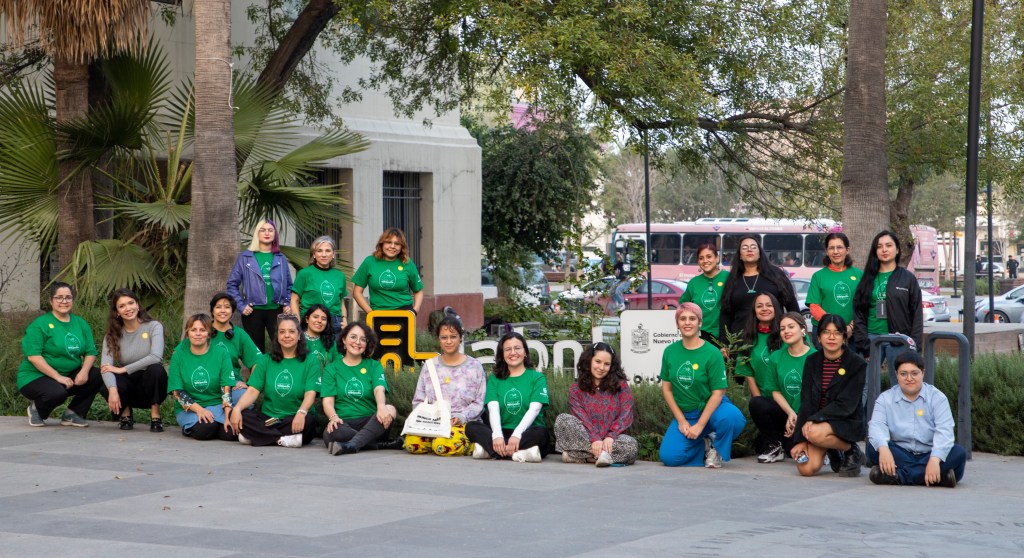
In 2015, Wikimedia Mexico presented the Editatona project. This initiative to reduce the gender gap in Wikimedia projects was created by Carmen Alcázar and it’s been replicated over 100 times, as of 2022, in diverse environments both locally and abroad.
Editatona is a feminist version of the edit-a-thons. In Mexico, it’s a separate space where women write about women on Wikipedia. Because of this project, they realized that another twin space was needed, to deepen the conversation about the subjects and questions that arise from the Editatonas. Furthermore, this space is needed to intensively develop skills for women who wish to access the free knowledge domain.
To do this, we colaborated with the Instituto Municipal de Mujeres Regias (Municipal Institute of Regian Women) and the LABNL, organizations from Monterrey and northern Mexico charged with the task of managing the first version of the School of Wikimedia Women, a course that consisted of six two-hour sessions per week, where subjects such as encyclopedic relevance, trusted sources, inclusive language, Wikimedia Commons, Wikidata, article deletion, or how to write and edit a Wikipedia article, among others, were covered.
This course began on November 3rd and concluded on December 8th, in hybrid modality. Part of the staff of WMMX, as well as guest specialists, facilitated the themes for 20 women who attended the sessions regularly. This produced the conditions to open dialogue and debate about shared information.
As a closing activity, an in-person Editatona was hosted by the LABNL so the participants could apply what they learned at the School of Women, also to get to know one another in person, and strengthen the network of women volunteers in Mexico.
This first version was conceived as a prototype, so that we may develop a new version in 2023 with women from a different city, and make the necessary adjustments to improve on this project, in order to convince more women to approach and compromise with Wikimedia projects.


You may look at more pictures here.

Can you help us translate this article?
In order for this article to reach as many people as possible we would like your help. Can you translate this article to get the message out?
Start translation